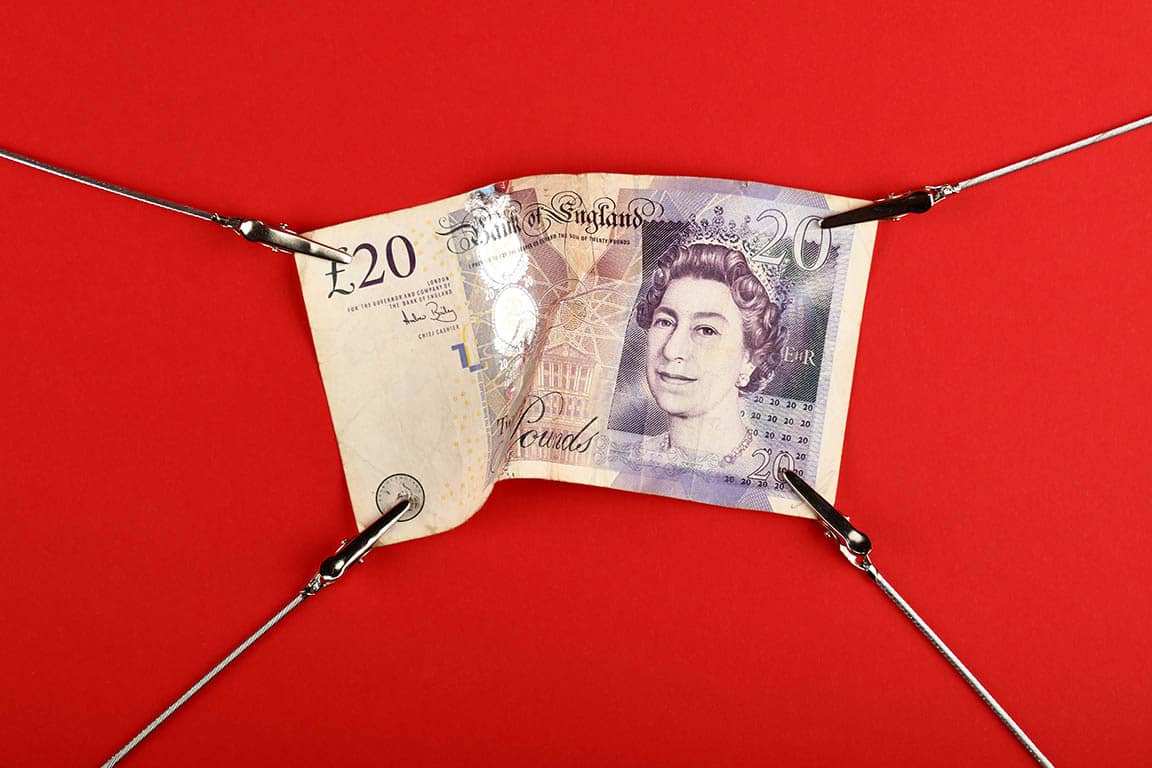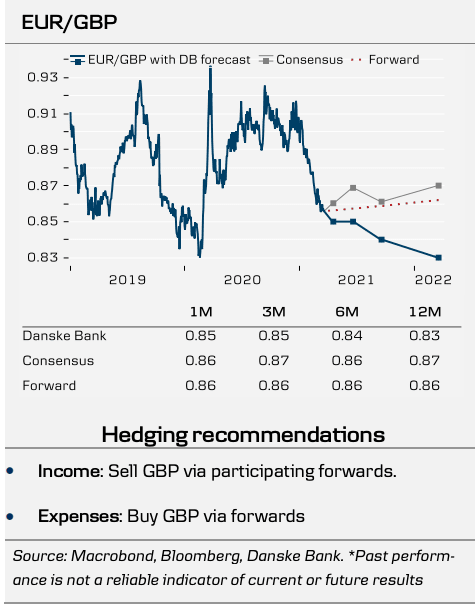Pound Sterling Drops to Six-week Lows, but Decline Could be a Temporary One say Analysts
- GBP sell-off extends
- Falling markets acting as a drag
- GBP/EUR at +1.20 in 6 months: Danske Bank

Image © Adobe Images
- Market rates at publication: GBP/EUR: 1.1582 | GBP/USD: 1.3715
- Bank transfer rates: 1.1358 | 1.3430
- Specialist transfer rates: 1.1500 | 1.3619
- Get a bank-beating exchange rate quote, here
- Set an exchange rate alert, here
A sell-off in the British Pound saw the currency record a new six-week low against the U.S. Dollar and a two-week low against the Euro as investors turned increasingly pessimistic about the global economic outlook, however some analysts we follow say the Pound should ultimately remain well supported thanks to the country's vaccine rollout programme.
The Pound has become increasingly synchronised with global factors since the signing of the EU-UK trade deal in December 2020, meaning that it can now often rise when global stock markets are rallying but fall when they decline.
"The pound has been behaving more like a risky asset than a safe haven one since the start of the pandemic. Indeed, the correlation between the FTSE 100 and the pound has risen sharply since the start of 2020," says Paul Dales, Chief UK Economist at Capital Economics.
Stock markets have fallen into the red this week as investors fear the global economy's exit from covid-19 restrictions will be slower than initially expected, thanks to surging cases in Europe and a slow global vaccine rollout.
"The darkening outlook over Europe pulled global equity markets lower," says Raffi Boyadjian, Senior Investment Analyst at XM.com.
Given the Pound's increased correlation with equity markets, the Pound has understandably decline with the Pound-to-Euro exchange rate going back below 1.16 to register a weekly low at 1.1566 and the Pound-to-Dollar exchange rate fell to a six-week low of 1.3700.
Despite an unhelpful backdrop other drivers of the Pound are potentially more supportive, leading to a view amongst some analysts that the currency's drop in value might be a short-lived phenomenon following a frantic bout of appreciation in January and February.
Underpinning a broadly supportive fundamental stance on the UK currency is a relatively rapid vaccine rollout, which has meant more than half the adult population has received at least one shot of a vaccine.
The question therefore is how long do investors ignore the supportive domestic picture and instead trade the UK currency according to global trends? This balancing act will likely dictate Sterling direction over coming days and weeks.
"The UK is gradually reopening supported by fast vaccinations, which, combined with businesses getting used to the new EU-UK trading relationship, means that the outlook for the UK economy looks much brighter," says Mikael Olai Milhøj Senior Analyst at Danske Bank.
Danske Bank expect the UK economy will outperform the euro area this year, which supports their view for a higher Pound-to-Euro exchange rate in 2021.
Danske Bank forecast the Pound-Euro exchange rate to trade at 1.2050 in three months, ahead of a move back down to 1.19 in six months.
However, near-term vaccine supply constraints could impact the rollout of the vaccine in the UK, which could give investors reason to pause their bullish assessment of the currency in the near-term.
"The growing risk of a serious disruption to the vaccine supply chain weighed on the euro and pound, while boosting the US dollar," says Boyadjian.
The government last week wrote to vaccine centres warning of a sharp drop in vaccine supplies from March 29, owing to the delay of an expected shipment of some 5 million doses from the Serum Institute in India.
Furthermore, some 1.5 million doses of a batch from AstraZeneca would require retesting.
"We expect GBP can strengthen further this year but we also recognise that it has come a long way with a lot of positivity already priced in. We will not be surprised if GBP takes a breather near-term," says Milhøj.
{wbamp-hide start}{wbamp-hide end}{wbamp-show start}{wbamp-show end}
Concerns over a potential blockade of vaccine shipments from Europe to the UK have also been a cause of concern, and we note here how this could only serve to further boost the Dollar against both the Euro and British Pound.
"Sterling fell to six-week lows amid an uncertain outlook for U.K. supplies of the coronavirus vaccine. The EU reportedly is to decide this week whether to ban vaccine exports to Britain as the bloc lags behind the U.S. and Britain in rolling out vaccinations, a scenario that undermined recovery prospects. The more upbeat outlook for the U.K.’s recovery hinges on its rapid inoculation rollout," says Joe Manimbo, Senior Market Analyst at Western Union.
Analysis from Citibank meanwhile suggests the Pound's recent losses against the Dollar and Euro are likely to be a short-term phenomenon as they have reiterated to clients this week they remain optimistic about the currency's prospects for appreciation.
The world's largest prime dealer of foreign exchange tell clients the UK's reopening is not fully priced into the currency's values and Sterling looks to them to be an "idiosyncratic" currency within G10.
"We remain long GBP/USD," says Rui Ding, analyst at Citi.

